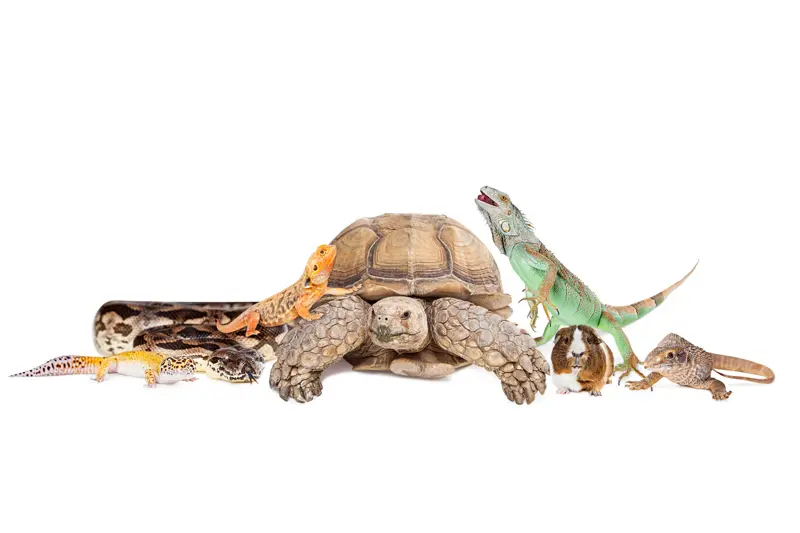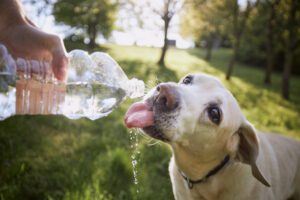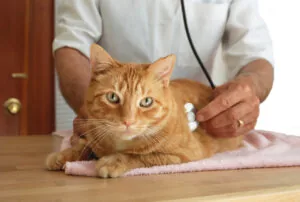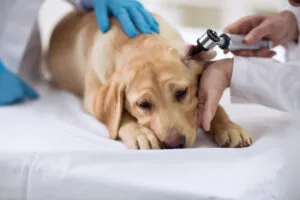The Importance of Small Animal Exotic Pet Preventative Care

Routine wellness examinations are one of the most important steps that exotic pet owners can take to keep their furry and scaly companions happy and healthy. Many of these animals live shorter lives than traditional pets, such as cats and dogs, and therefore early recognition and treatment of medical conditions can safeguard a long, healthy and active life.
Exotic pets are a fantastic option for a number of reasons:
● Many of them are a great choice for people with allergies
● Those pet lovers who are looking for a fun and new learning experience
● People who desire a companion that doesn’t require frequent attention or maintenance
Exotic pet veterinarians can be difficult to find and locate in your area. Who you know and trust can really make the difference in an emergency situation.
Regular medical care for your exotic animal family member is an important part of keeping your pet healthy. In fact, visits to your exotic animal veterinarian are often even more valuable, as exotic animals are adept at hiding signs of illness. Many health issues are a result of improper or marginal husbandry, care, and diet problems. This is why a post-purchase examination is highly recommended to start out correctly to prevent more complex and costly problems later. In addition to a complete physical examination, the initial visit involves an in-depth discussion about your pet’s environment and diet. We may also recommend screening diagnostic tests depending on your pet’s species and history. These tests may include blood work, fecal analysis, and/or additional disease testing. In the event of detectable abnormalities or illness, more advanced or specialized diagnostic testing may be recommended.
Rabbit Medicine Recommendations
Physical Examination Every 6-12 Months
It is recommended that all newly acquired pet rabbits receive a complete physical examination. Thereafter, you should have your pet examined by a veterinarian every 6-12 months or anytime signs of illness/disease are noted. Beginning at the age of three years, annual blood work is recommended in order to assist with early detection of disease. Early treatment of disease processes is essential to promoting a long and healthy life.
Spaying and Neutering
- In addition to preventing unintentional breeding of animals, spaying and neutering has significant health and welfare benefits in pet rabbits.
- Although it can be performed in healthy animals of any age, it is ideally performed between 4 and 6 months.
- Spaying is one of the most important measures of preventative health care to be performed in female rabbits.
- Approximately 80% of unspayed female rabbits will develop neoplasia (cancer) associated with their reproductive tracts as adults. Spaying reduces this risk considerably.
- Neutering of male rabbits helps curb aggressive and territorial behavior, such as urine spraying.
Nail Trims
- Rabbits need to have their nails trimmed on a regular basis.
- If they get too long, they may become caught and break off, causing pain and bleeding.
- Nail trims may be scheduled as technician appointments or performed during routine physical exam appointments.
Preventing Heat Stress
- Temperatures over 85°F are uncomfortable to rabbits and may result in overheating.
- Because of the climate in this region, we recommend that all rabbits be kept indoors.
- Signs of heat stress include increased respiratory rate/effort, fever, lethargy, etc.
- If you suspect heat stress in your rabbit, contact your veterinarian immediately.
Urine
- Normal rabbit urine contains a lot of sediment (mostly calcium), and the color often varies from white to light brown.
- Under certain circumstances, such as when stressed, sick, or receiving medications, the urine may appear orange or red-tinged (sometimes mistaken for blood) due to the excretion of a normal pigment.
- Because rabbits can develop urinary tract infections resulting in blood in the urine, it is recommended that you contact us to perform a urinalysis in any situation in which blood is suspected.
Signs of Illness
- It is important to always monitor your pet at home for signs of illness/disease. The following are common disease conditions in rabbits. Should you notice anything worrisome, contact us immediately.
- Changes in appetite: Reduced appetite/anorexia or reduced/no feces is usually considered a same day medical emergency in rabbits.
- There may be a primary GI tract problem or an underlying disease or issue, such as molar overgrowth or an infection.
- If not addressed in time, GI stasis can lead to hypothermia (low body temperature), severe dehydration, or even death.
- Dental disease:
- Drooling, spitting out food, pickiness, and/or weight loss are signs that may indicate dental problems.
- Dental disease can lead to ulcers, infection/abscesses, or reduced appetite and GI stasis if not appropriately addressed.
- Molar overgrowth/malocclusion is often a recurrent issue requiring regular anesthetized dental trims
- Changes in appetite: Reduced appetite/anorexia or reduced/no feces is usually considered a same day medical emergency in rabbits.
Other Small Exotic Mammal Medicine Recommendations
Physical Examination Every 6-12 Months
Regular physical examinations allow for the early detection and treatment of diseases. Many species have the potential to develop specific species related problems that can be detected early by regular examinations. Depending on the age and medical history of your pet, we may recommend wellness exams more frequently.
Diagnostic Testing
Blood Work
- A complete count and blood chemistry panel is recommended.
- Small exotic mammals are basically a prey species so they are notorious for hiding signs of illness.
- Annual testing in chinchillas and ferrets should begin at an age of 2-3 years.
- Blood work may also be recommended in your smaller exotic animal family member, such as guinea pigs or rats.
- Obtaining samples in small mammals sometimes require a brief anesthetized procedure for your pet’s safety and to be able to obtain an adequate sample with minimal stress.
- With the information obtained this basic blood work helps evaluate your pets’s health more thoroughly assisting in the early detection and treatment of disease.
Fecal Analysis
- Analysis of a fecal sample may be recommended in your pet for the detection of parasites or other abnormalities.
Vaccinations
- Depending upon the exotic pet species rabies and distemper vaccinations may be recommended.
Grooming
- Regular nail trims make handling your pet more comfortable and help prevent snagging of sharp nails, which can cause injury. Many small exotic mammals require nail trims every few months. While some people can trim their own pet’s nails, many prefer to have grooming performed by our trained staff members.
What Should You Expect From Your Exotic Veterinarian?
Your veterinarian should ensure that your pet’s environment is the most safe and suitable environment for their health. Many reptiles require their enclosures to be maintained at certain temperatures and have exposure to certain types of lighting to ensure proper bone growth and metabolism. Nutrition is another important subject that should be discussed during a wellness exam. The digestive system of a rabbit is very different from other furry pets and they require constant access to hay. It is important that exotic pet owners are aware of common diseases and symptoms for early detection of these diseases. For example, ferrets are prone to pancreatic tumors known as insulinomas. Proper detection and treatment can add to their quality of life and the quantity of time you have with your ferret. Working with your pet’s veterinarian and veterinary staff is important, as they can also help with detecting and treating common parasites, performing nail trims, and oral exams, amongst other preventative care services.
Share This Post
Recent Posts
About Shallowford Animal Hospital
Shallowford Animal Hospital and The Pet Spa at Shallowford are dedicated to the exceptional, compassionate care your pet deserves. Pets hold a very special place in our families, and we treat yours like our own.



